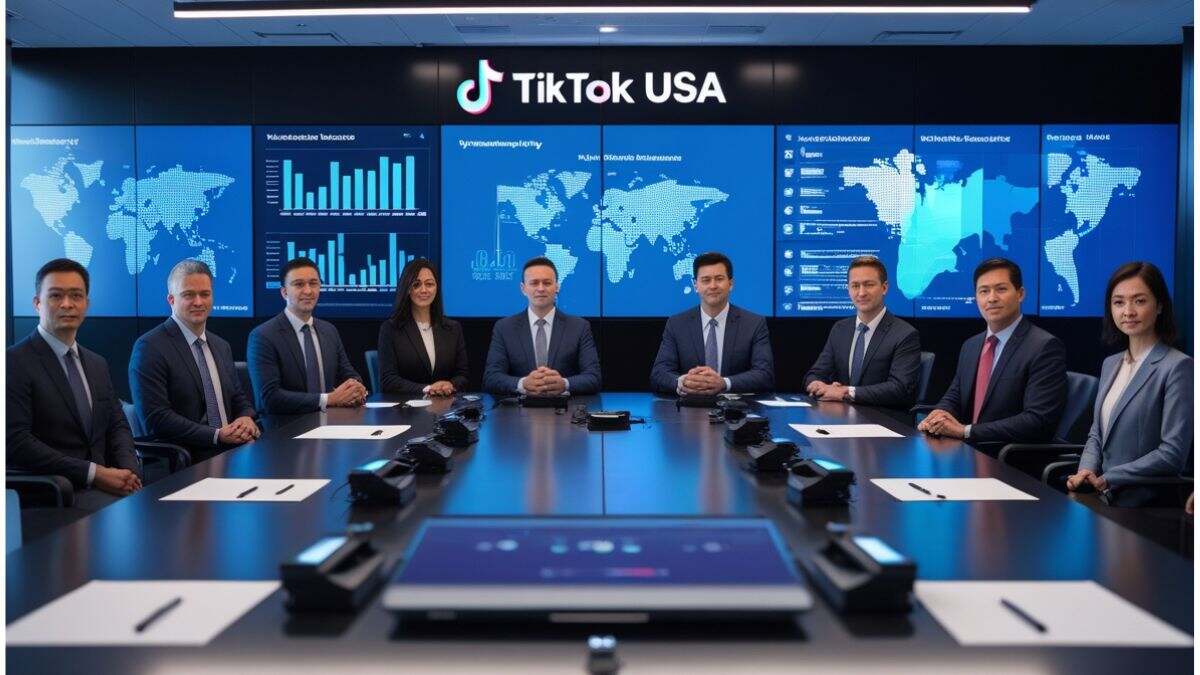The profit-sharing plan is the most recent development in a remarkable corporate drama that has transpired under many US administrations.
According to persons familiar with the situation, TikTok’s Chinese parent firm will probably keep about half of the profits from the US operation of the platform even after selling the bulk of the business to American investors as part of a deal arranged by President Donald Trump.
According to persons who asked not to be named because the arrangements are secret, ByteDance Ltd. is anticipated to get a license fee on any income produced from making its algorithm accessible to the US operating entity in addition to a percentage of the profit proportionate to its equity interest. After its new owners take over, the parent firm located in Beijing is likely to get at least 50% of the US operation’s total profits, according to the sources.
The White House, ByteDance, and TikTok did not reply to inquiries for comment.
The profit-sharing plan is the most recent development in a remarkable business drama that has unfolded across many US administrations. A statute that President Joe Biden approved mandates that ByteDance either hand up control of TikTok’s US operations to American ownership or face closure. Trump, who often claims that support on TikTok helped him win the 2024 election, has repeatedly delayed the sale date since taking office in an effort to reach an agreement to keep the site running.
The US side claimed that the leaders had struck an agreement for the sale when Trump and Xi Jinping, the leader of China, talked over the phone last week. However, Chinese officials have refused to substantiate that consensus, and the specifics of the deal remain undetermined. Vice President JD Vance exacerbated the uncertainty on Thursday by stating that the sale will cost around $14 billion, which is far less than the $35 billion to $40 billion experts had predicted.
One possible explanation for the discrepancy is the profit sharing arrangement. The present plan calls for TikTok US to pay ByteDance a sizable license fee based on the money it makes from the usage of its algorithm, the core technology that is responsible for the service’s addictive qualities. For such rights, ByteDance may get 20% of additional income, or money from the algorithm, according to one of the individuals. For instance, ByteDance may get up to $4 billion under such circumstances if its sales is $20 billion.
Additionally, in accordance with its remaining equity position, ByteDance would get around 20% of the profit from the remaining income. Current investors and the US-backed consortium, which probably consists of Oracle Corp., Silver Lake Management, and Abu Dhabi-based MGX, would split the remaining earnings. The estimated ownership of the US firm by that group is 80%.
This new venture’s profit sharing demonstrates why there is such a discrepancy between the price tag proposed by the Trump government and the value that many analysts have assigned to the US company.
Alpha Binwani Capital founder Ashwin Binwani, who does not own any ByteDance stock, said that the $14 billion offer “may be the most discounted tech purchase of the decade.” According to his estimation, the floating number represents one-third of TikTok’s actual worth. “This price tag seems to be far out of line with reality by all significant financial metrics and peer comparisons.”
According to Vance, the buyers will “ultimately” decide how much is payable. How close ByteDance and the purchasing group are to settling on terms is unclear.
In response to Trump’s most recent remarks, the Chinese embassy in Washington reiterated a prior statement on the subject. For Chinese investors, the “U.S. side has to create an open, fair, and non-discriminatory environment,” the statement said.

